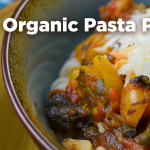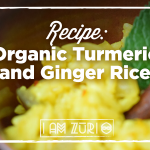Who Pays For Cheap Food?
So who pays for cheap food? You do! Even if you’re not eating it, you’re paying for it. Think there are no facts to back this up? Just read this interview with Author, Organic Farmer and Activist, Dr. Will Allen.
Here are the questions I asked Will when we discussed food prices:
Zuri: What is the cheapest food we can buy on the market today?
Will: Organic food is the cheapest food in the U.S. because you only pay for it once. You pay for chemical and genetically modified food at least five times. The first payment you make is at the supermarket; I call that the down payment.
Zuri: So it’s a downpayment on what you will pay later?
Will: Exactly, this is what we all will pay even if we aren’t the one putting the actual downpayment at the store.
Will: The second payment is at tax time. 80% of our food is processed food made up of corn, cotton, soy, canola, rice, wheat, and sugar. They eat up 98% of all the subsidies. Those subsidies are paid for on tax day by me and you.
Zuri: So at this point, you’ve doubled your investment without even knowing about it?
Will: Yes, and the third payment which is one of the most depressing is when you go to the doctor. In the last 20 years, an average of 60 million people has contracted a foodborne illness in this country. About 225,000 over that 20-year period have gone to the hospital and more than 4,000 die each year. As soon as you go to the hospital, prices soar. The average American is also taking supplements, pharmaceuticals, and antibiotics to treat these foodborne illnesses.
Will: The Fourth payment for cheap food is chronic diseases. These diseases are comprised of heart disease, stroke, cancer, diabetes and obesity. All of the chronic diseases are food related illnesses and on the rise each year. In addition chronic allergies are lumped into this fourth payment because once an American has an allergy they are likely on pharmaceuticals or dietary restrictions that require them to spend more to avoid those allergens. It’s probably not news, but it really is what you are eating that is making you fat and sick.
Zuri: The fact is that industrial agriculture is a dirty business. There’s a reason why there are warning signs on conventional seed bags and herbicide packaging and fences where they use toxic chemicals. So where does that leave us with the fifth cost?
Will: The fifth payment is clean-up! We have to ask, who’s going to clean up that farmland when the factory farmer leaves? Those farmers are not prepared for post-bankruptcy as soon as you tell them to clean it up… they are going to be looking for a bailout. Guess who will bail out the contaminated environment? It is you that is going to clean up the drinking water, the oceans, the atmosphere, and the soil caused by industrial agriculture.
Zuri: How do we overcome this cheap food trap?
Will: We need to educate people and share these hidden costs. When a person buys a bag of conventional potato chips they are investing in a future that isn’t sustainable for themselves or the environment.
Zuri: I remember when I was a high school cheerleader we had to stop at fast food restaurants and eat there during away games. One of the things you said to me really stuck during that era and I always use it during speaking engagements and that is, “purchasing good food is like purchasing health insurance” and this was prior to understanding all the costs you mentioned here attached to that fast food experience. Mind you, in my teenage brain I thought I was indulging in a once a week treat while out of my parent’s house. Do you still believe that organic food is like buying health insurance?
Will: Absolutely. Each one of your purchases is not only a vote for your health but a vote for a healthy food future. The bees, the drinking water, oceans, climate, soil, air and the future of humanity relies on our small everyday choices we make. Most of those choices start with food and what agricultural system we support.
To learn more about Will Allen visit him here.
Share this knowledge with your friends! Download a PDF of this information here.
[…] Although these are valid misconceptions (due in large part by the marketing tactics of big food corporations), they are still misconceptions. Are you still deciding whether or not to go organic? If so, I recommend reading these two articles: How To Eat Organic On A Budget and Who Pays For Cheap Food. […]
[…] eat organic go here. If you think “conventional” food is so cheap and wonder why, go here and come back for our practical hacks to make organic a part of your […]
[…] buying cheap stuff is expensive, for some of the same reasons that buying cheap foods is expensive (more on that here), but also because cheap stuff doesn’t last. Therefore, you have to buy cheap stuff over and […]
Leave a Comment











Great article!
The little bit extra that an organic diet costs is totally worth it.
This is so true. The “healthcare” industry is NOT about keeping people healthy, they don’t make money off of healthy people.
Same issue with the “food” industry. They want you addicted to their food like substances so they can keep making money of if you.
One more thought, I am not trying to be political, but please remember, Hillary Clinton was one of Monsanto’s lawyers. She is owned by the corporations that seek to poison us. You will not hear about this in the MSM, because it is understood that this tie will hurt her. She is against all labeling laws. I don’t like Trump either, thinking about a third party candidate so that I can sleep at night.
Love this ❤️ And love you!